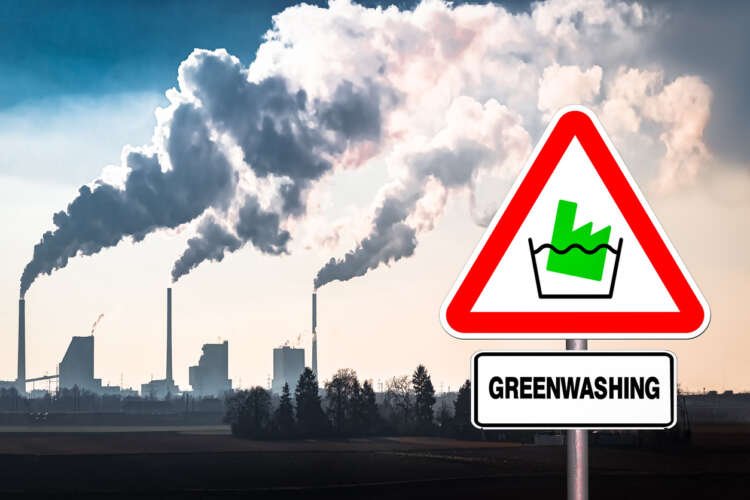The end of Greenwashing?
Published by Jessica Weisman-Pitts
Posted on September 26, 2022
5 min readLast updated: February 4, 2026

Published by Jessica Weisman-Pitts
Posted on September 26, 2022
5 min readLast updated: February 4, 2026

By John O’Donovan, Partner and Head of Banking & Finance at law firm Harold Benjamin
Being sustainable and environmentally friendly has been at the forefront of every organisation’s strategic agenda for some time. Events such as COP26, and frameworks such as the Green Loan Principles setting out the components for a loan to be considered green have helped ESG remain at the forefront of all agendas. This has also meant that everyone is very keen and meticulous about communicating their contributions and compliance with ESG criteria. The reasons for this should of course be part of contributing to a better, more sustainable and greener future. However there has been concern that some organisations use it more as a marketing tool to promote and/or change the perception of their company which may, or may not be that sustainable. Whilst from a lending perspective it can also assist with obtaining more favourable terms.
On-going Concern
Ever since ESG requirements and the availability of Green Finance have become more prominent in the market concerns around “greenwashing” have been raised. This was bought into sharp focus with the recent raid by German prosecutors on Deutsche Bank’s asset management arm DWS. Whilst they continue investigations into allegations of greenwashing we cannot ignore the sense that this may prove to be a pivotal moment in the developing ESG market. Many experts believe that blanket statements about sustainability will no longer been seen as sufficient and that ESG reporting will subject to greater scrutiny going forward. Whilst this may be seen as long overdue in some quarters, it will not immediately provide a solution as the question of suitable data quality is likely to provoke further debate. What one institution may consider satisfactory to substantiate an ESG claim, another may not. Understandably it may also lead people to be more reserved about what information they disclose if they have concerns around being able to substantiate it sufficiently.
The finance industry relies heavily on reporting and labels and at present there are differing standards in relation to defining sustainability and ESG thresholds. This only serves to conflate matters further which has led to a perception that sometimes there can be a disparity between what a product is labelled and it’s actual ESG performance.
Grey Area
Many would argue that there is a lot of grey in the ESG and greenwashing sphere. Even the current sustainability rating agencies can have differing criteria. In light of the raid on DWS many financial institutions’ immediate reaction may be to take a much more conservative approach to KYC and compliance. Particularly in relation to clients, products and monitoring. However, for this to be effectively implemented there are likely to be various operational obstacles. Banks for example can ask for additional, detailed information from their clients. This though poses the question – are they really best placed to analyse and evaluate to ensure it can be adequately substantiated? They will not hold all of the knowledge and may need to recruit new talent and third-party assistance to support this transition, which will only increase time and cost.
Regulation
Whenever there is a grey area or widespread debate around the level of acceptable scrutiny, the prospect of greater and wider regulation is raised. Whether this takes the form of more legislation, general disclosure standards or consistent environmental reporting remains to be seen. But by having clear, concise and consistent requirements, nongovernmental organisations, consumers, investors and regulators should be able to more effectively hold financial institutions to account over their ESG claims and provide a way to measure actual performance against representations. This will enable greater transparency, provide a definite rulebook and level the playing field.
Putting this in place is unlikely to be a quick or straightforward task given the number of stakeholders involved and process to go through. At the European level, the European Securities and Markets Authority’s Sustainable Finance Roadmap 2022-24 highlights “tackling greenwashing and promoting transparency” as the first of its three priorities. Whilst in the US, the SEC has proposed requiring US listed companies to disclose a range of climate-related risks and greenhouse gas emissions in filings such as annual reports. Whilst this is being implemented – and considering the DWS raid – there is a concern that the ESG market may stagnate until this clarity is provided. The truth is that it needs to be scaling up.
Conclusion
Putting a stop to greenwashing practices will be appreciated by all in the ESG community. Applying and putting in place consistent standards and requirements will be welcomed by the finance sector on both the retail and institutional side for the assurance and clarity it will bring.
Ultimately the primary goal of ESG commitments is to protect the planet and ensure a greener more sustainable future. Time is therefore of the essence, and whilst the requirement for firms’ actions to match their words is a necessity, we mustn’t lose sight of the bigger picture.
Greenwashing is a deceptive marketing practice where a company exaggerates or falsely claims its environmental efforts to appear more sustainable than it is.
ESG criteria refer to Environmental, Social, and Governance standards used by investors to evaluate a company's ethical impact and sustainability practices.
Sustainable finance refers to financial activities that consider environmental, social, and governance factors in investment decisions to promote sustainable economic growth.
Green loans are loans specifically earmarked for projects that have positive environmental impacts, such as renewable energy or energy efficiency improvements.
ESG reporting is the disclosure of data covering a company's operations in relation to environmental, social, and governance factors, aimed at providing transparency to stakeholders.
Explore more articles in the Finance category
